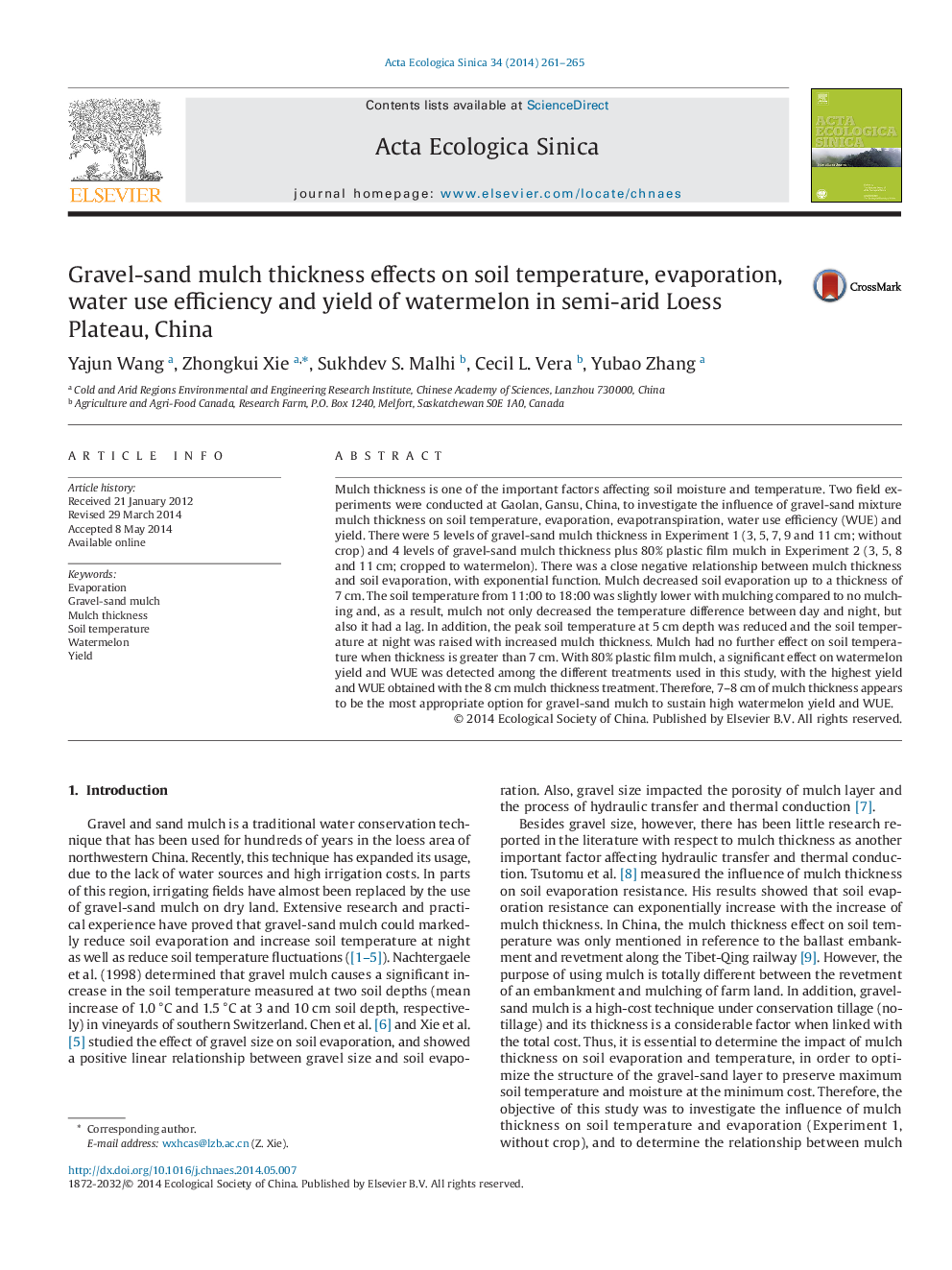| Article ID | Journal | Published Year | Pages | File Type |
|---|---|---|---|---|
| 4379929 | Acta Ecologica Sinica | 2014 | 5 Pages |
Mulch thickness is one of the important factors affecting soil moisture and temperature. Two field experiments were conducted at Gaolan, Gansu, China, to investigate the influence of gravel-sand mixture mulch thickness on soil temperature, evaporation, evapotranspiration, water use efficiency (WUE) and yield. There were 5 levels of gravel-sand mulch thickness in Experiment 1 (3, 5, 7, 9 and 11 cm; without crop) and 4 levels of gravel-sand mulch thickness plus 80% plastic film mulch in Experiment 2 (3, 5, 8 and 11 cm; cropped to watermelon). There was a close negative relationship between mulch thickness and soil evaporation, with exponential function. Mulch decreased soil evaporation up to a thickness of 7 cm. The soil temperature from 11:00 to 18:00 was slightly lower with mulching compared to no mulching and, as a result, mulch not only decreased the temperature difference between day and night, but also it had a lag. In addition, the peak soil temperature at 5 cm depth was reduced and the soil temperature at night was raised with increased mulch thickness. Mulch had no further effect on soil temperature when thickness is greater than 7 cm. With 80% plastic film mulch, a significant effect on watermelon yield and WUE was detected among the different treatments used in this study, with the highest yield and WUE obtained with the 8 cm mulch thickness treatment. Therefore, 7–8 cm of mulch thickness appears to be the most appropriate option for gravel-sand mulch to sustain high watermelon yield and WUE.
